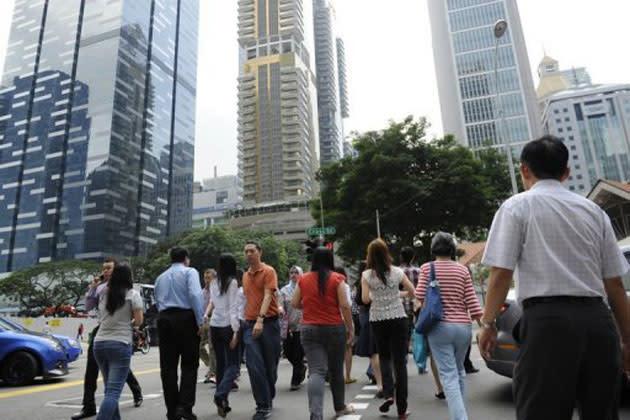COMMENT: Singaporeans need more space, not more rules

Kirsten Han is a Singaporean blogger, journalist and filmmaker. She is also involved in the We Believe in Second Chances campaign for the abolishment of the death penalty. A social media junkie, she tweets at @kixes. The views expressed are her own.
One can never accuse Singapore of having too much space. The island is tiny. Space is at a premium.
In preparation for a growing population there are measures that need to be taken. Resources need to be re-calibrated to make sure that there is enough for everyone, and policies may need to be re-looked or even re-written.
Speaking at the Institute of Policy Studies’ Conference on Civil Society, former Attorney-General Walter Woon took advantage of this situation to advocate for more rules in Singaporean society. Conflating the issue of physical space with that of civic and political space, he said that Singaporeans would need to “learn to disagree without being disagreeable” as interests groups competed for space.
The TODAY article backed up his point with comments from Law Minister K Shanmugam saying that not all engagement with civil society groups has resulted in a “positive experience”.
There appears to be a fear of disruption in Singapore, one that goes hand-in-hand with fears of being disagreeable or confrontational. We constantly worry about making a mess, causing a ripple on the surface of orderly calm. Our solution? More rules.
Yet political space is not like physical space. When worried about the pressures of living in a densely-populated city, our reaction should not be to impose more rules and limitations on civil society, partitioning people into little political boxes the way we would house people in small flats. Introducing more rules to restrict civil society action and co-opt movements to operate only within the confines of what those in power deem appropriate will not relieve the stress of a high-paced, crowded environment. The feeling of helplessness and not having a voice will only add to the frustration.
Instead, we in Singapore should ensure that there is more space for citizens to be engaged and to participate in interests groups and democratic actions. The problems that we will face should be met with opportunities for citizens to step up to the plate and campaign for causes close to their heart. Interest groups and activists should be jostling for space, pitting ideas and arguments against one another. Everyone should be able to participate, and not just on the state’s terms.
There are many cases in which the government and civil society have come together to produce satisfactory results. As the Law Minister pointed out, animal welfare groups have engaged the government and both sides have done well.
But not all causes are like animal welfare. Others, like the campaigns for the abolishment of the Internal Security Act and the death penalty, have more political sensitivities tied in. In such cases, engagement between the government and the activists may not often be positive or fruitful. We should not expect them to be, nor should we brush these things under the carpet in favour of maintaining the illusion that all is well. Such struggles will never come easy, and there will be frustration on both sides. That’s no indication of failure, but of democracy and civil society in action. We should be proud of such activity, not fearsome. We should be speaking out in support of such engagement, not calling for more rules to damp it down.

